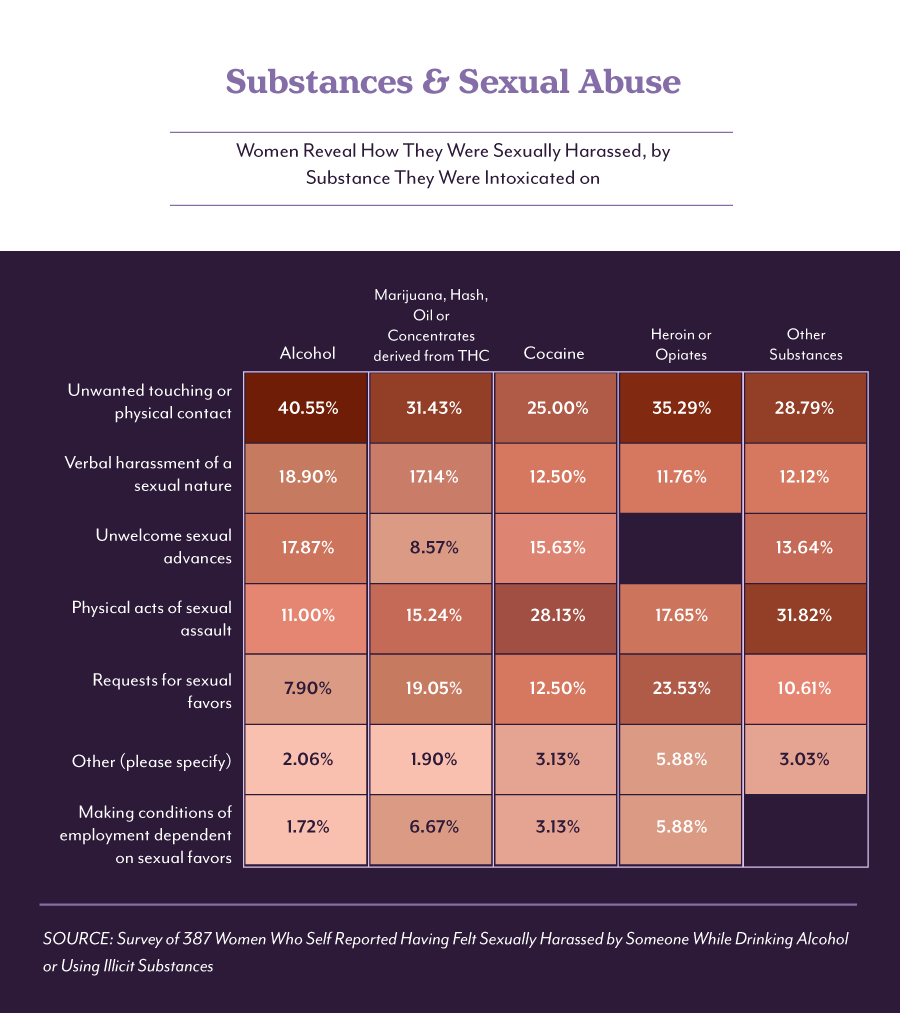Sexual Assault and Substance Abuse: A Disturbing Nexus
In contemporary discourse surrounding sexual violence, the intersection of drug abuse and sexual assault emerges as a chilling reality that warrants critical examination. The phenomenon of drug-facilitated sexual assault (DFSA) has profound implications, challenging societal perceptions, victim support systems, and the efficacy of law enforcement responses. Understanding the dynamics of DFSA is imperative to create a comprehensive strategy against this form of violence. It beckons a shift in perspective—one that acknowledges the multifaceted motivations behind these heinous acts and advocates for preventative measures as well as victim-centered resources.
Unmasking Drug-Facilitated Sexual Assault
The term drug-facilitated sexual assault encompasses a range of predatory behaviors wherein individuals utilize substances to incapacitate victims, rendering them unable to give consent or resist. This exploitation often involves the covert administration of sedative agents, such as alcohol, benzodiazepines, or other illicit drugs. Research indicates that these substances not only impair cognitive functions and lower inhibitions, but they also obscure victims’ memories of the event, complicating the judicial process. The subtext of such assaults reveals a shocking truth: the perpetrators often choose the substances most effective at subduing their targets, thereby exposing a sinister premeditation.
Prevalence and Underreporting of DFSA
Statistical data regarding DFSA remains an underexplored area, partly due to the stigma associated with sexual assault and the complexities of victims’ experiences. Many survivors grapple with feelings of shame or guilt that deter them from reporting incidents. Victim narratives often indicate that their lack of memory surrounding the assault further exacerbates their reluctance to seek justice. Consequently, an undercurrent of disbelief often shadows these cases, leading to a culture of silence around drug-facilitated rape. This profound silence not only affects individual survivors but also impacts broader societal understandings of sexual violence and the mechanisms through which it proliferates.
Shifting Societal Narratives: From Blame to Empowerment
To combat the pervasive nature of DFSA, societal narratives must transition from victim-blaming to a culture of empowerment. Educational programs aimed at increasing awareness about consent and the signs of DFSA could play a pivotal role in reshaping public perception. Campaigns focusing on personal responsibility, as opposed to victim’s choices, could help cultivate environments wherein openness about experiences becomes a norm. Survivors’ stories need amplification, promoting discussions around agency, empowerment, and resilience.
Legal Considerations: The Challenge of Prosecution
The criminal justice system often encounters significant challenges when addressing DFSA cases. The complexities of proving a lack of consent, coupled with the difficulties in obtaining concrete evidence, renders the prosecution of such crimes particularly arduous. Many jurisdictions have begun to recognize DFSA as a distinct category of sexual violence, yet legislation addressing the unique elements of these cases is still inadequate. Victims frequently encounter skepticism, further disenfranchising them from the very systems designed to protect their rights. This calls for legislative reforms to establish clearer definitions of consent in the context of drug abuse, enhancing victim testimony protections while ensuring a fair trial for defendants.
The Role of Substance Use in Perpetration
Understanding the motives behind DFSA offers insight into preventative measures. Substance use among perpetrators often reflects broader societal issues, including toxic masculinity and the normalization of violence as a form of power expression. Many offenders employ substances not only to incapacitate victims but as crutches to diminish personal accountability. Interventions must dissect this cultural acceptance of deviant behaviors, fostering dialogues that confront aggressive masculinity and provide alternative frameworks for masculinity rooted in respect and empathy.
Resilient Survivors: Pathways to Healing
For victims navigating the aftermath of DFSA, healing becomes a multifaceted journey. Accessing trauma-informed care that emphasizes psychological resilience is paramount. Survivors often benefit from support groups and therapeutic modalities that offer safe spaces for processing their experiences. Furthermore, educational initiatives targeting healthcare providers about the specific needs of DFSA survivors can enhance the quality of care they receive. Healing is not linear; recognizing this fluidity can empower individuals in reclaiming their narratives and fostering a sense of agency.
The Importance of Community Engagement
The community plays an indispensable role in addressing the complexities of DFSA. Collaborative efforts among local organizations, educators, law enforcement, and mental health professionals can create robust support networks for victims. Community initiatives that host workshops on consent, healthy relationships, and substance abuse prevention can drastically shift how individuals perceive and engage with these pressing issues. By building inclusive environments where survivors can seek help without fear of judgment, communities can galvanize collective action toward eradicating sexual violence.
Research and Future Directions
The academic exploration of DFSA is still evolving. Future research must aim to delineate the various impact factors influencing substance-facilitated assaults, thus providing a clearer analytical framework for prevention and intervention strategies. Interdisciplinary studies that draw from psychology, sociology, criminology, and public health can establish a richer understanding of this national crisis, culminating in policies that are both comprehensive and nuanced. Scholarship focusing on precautionary measures—such as safe party environments or coordinated bystander interventions—is essential for minimizing risk and promoting cultural change.
Conclusion: A Call to Action
The complexities entailed in drug-facilitated sexual assault extend beyond individual experiences; they precipitate a ubiquitous cultural and systemic crisis. Challenging prevailing narratives and dismantling the societal constructs that permit violence is imperative for engendering a safer world. By cultivating a deeper understanding of DFSA and advocating for comprehensive reforms—educational, legal, and communal—society can initiate a transformative shift. Ultimately, the path to justice, healing, and prevention is collective, necessitating collaboration from all facets of the community. The discourse surrounding DFSA ought to evolve, prioritizing prevention and survivor empowerment, establishing a robust foundation for enduring change.
